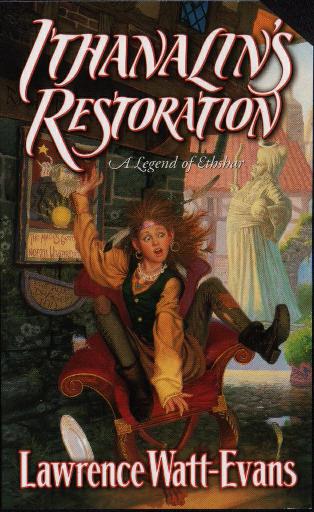 In “a distant time and far-off place,” Cynthia Voight created a dynamic and intense character in a complex society. Unlike her more well-known Tillerman series, where the young Dicey is acting as father and mother for a brood, Voight’s character, Gwyn, has parents – they’re innkeepers at the Ram’s Head, and for peasants, they are fairly prosperous. They have their place in the rigidly controlled medieval hierarchy. In that structure, a woman’s burden is solid and soul-destroying, and completely controlled by the men in the village. Men, whom Gwyn regards with a sort of hopeless and tired envy, have far more choices than women, but even their choices are constricted.
In “a distant time and far-off place,” Cynthia Voight created a dynamic and intense character in a complex society. Unlike her more well-known Tillerman series, where the young Dicey is acting as father and mother for a brood, Voight’s character, Gwyn, has parents – they’re innkeepers at the Ram’s Head, and for peasants, they are fairly prosperous. They have their place in the rigidly controlled medieval hierarchy. In that structure, a woman’s burden is solid and soul-destroying, and completely controlled by the men in the village. Men, whom Gwyn regards with a sort of hopeless and tired envy, have far more choices than women, but even their choices are constricted.
Into her narrow world, a young Lord comes. Separated from his father in a snowstorm, Gadrian, together with Gwyn, is stranded in an abandoned cabin. In the intervening days as they have no other company but their own, from Gadrian Gwyn learns of a whole world beyond the mountains. They learn from each other, at first in small snatches, then in the larger give and take of friendship, she teaches him to fight like a peasant; he teaches her the elegance of the swords. Gwyn teaches him woodcraft, Gadrian teaches Gwyn to read. Little by little they move toward each other as brothers-in-arms, instead of as Lord and peasant. But trusting yourself to another’s swords goes only so far – they are still not equals. Gwyn is reminded of this forcefully when racing back to the Inn. Getting there first — without the Lordling she was meant to protect — leaves Gadrian’s father in fear that his son is dead, and he puts his swords to her throat. From that day, Gwyn loses her trust of the way things work, and that her family can protect her. There needs to be, she sees, another way. People should be free.
There are stories in the village, and in the towns beyond. Stories of a one called Jackaroo, one who shoulders the burdens of the poor, who takes up for the weak, who does not let the Lords fatten upon the lives of the peasants. Such stories are the usual rumors that bring a brief and watery hope to the people, but when Jackaroo finds a gauntlet in the woods like the one worn by Jackaroo, she realizes that he is real… but not in her world. Her world needs a hero, and needs one now. Why can’t she just put on the mask…?
This is a story like Robin Hood, but better, since it’s without the icky Maid Marian, who stood around and did nothing but screw things up, and without the blithe mindless I-can-out-clever-you-all-naah-nah of Robin Hood.
It is hard for Gwyn to put on the mask, hard to set aside the ingrained feminine training where men are revered, the gentry are always right, and she does as she is told, panders for attention from eligible males and considers herself in terms of marriage and nothing else. Further, once she has started down that road, there are paradoxes and traps within doing good for others. Do they deserve it? Will they, in turn, do good to others, or will they simply expect more? Is good, in itself, enough? Why does she have to order people to do right? Why won’t they, as freed people, act in good conscience freely?
I relished the moral implications Voight explored. It’s not easy to ride in and be the hero, yet too often in fiction it is produced as a simple solution. Though the whole thing started as a lark, as a way to take on the Lords and be daring, Gwyn realizes before long that she is ill-prepared for what she has to do, and the people are completely unprepared to be assisted, to change their own lives. And what then?
There were too many like Am among the people, too many who gave up the fight. But what could you expect, when all of life was so hard and hopeless? How could someone fight and know he never would win? And who was the enemy? Could a man fight off a long winter or a dry summer? No more than he could fight against the Lords. Aye, the people could not manage without the Lords, they were children unable to take care of themselves…. Why should Jackaroo take such risks, for such people…. Aye, she had no choice in the matter any more. (p. 226)
The novel ends with several rapid twists of plot that may confuse the reader who isn’t following closely. Mistaken identities crop up, as suddenly Gwyn is not the only masked rider – there’s more than one Jackaroo, and they’re all riding for their own reasons. The Lords want someone to hang for it, though, and hang someone will. Will she be in time to save everyone? Does everyone need to be saved? Is there truly a purpose to wearing the mask?
Well, you’ve got to read the story to know for sure. One promise, though: it’s wicked cool.



